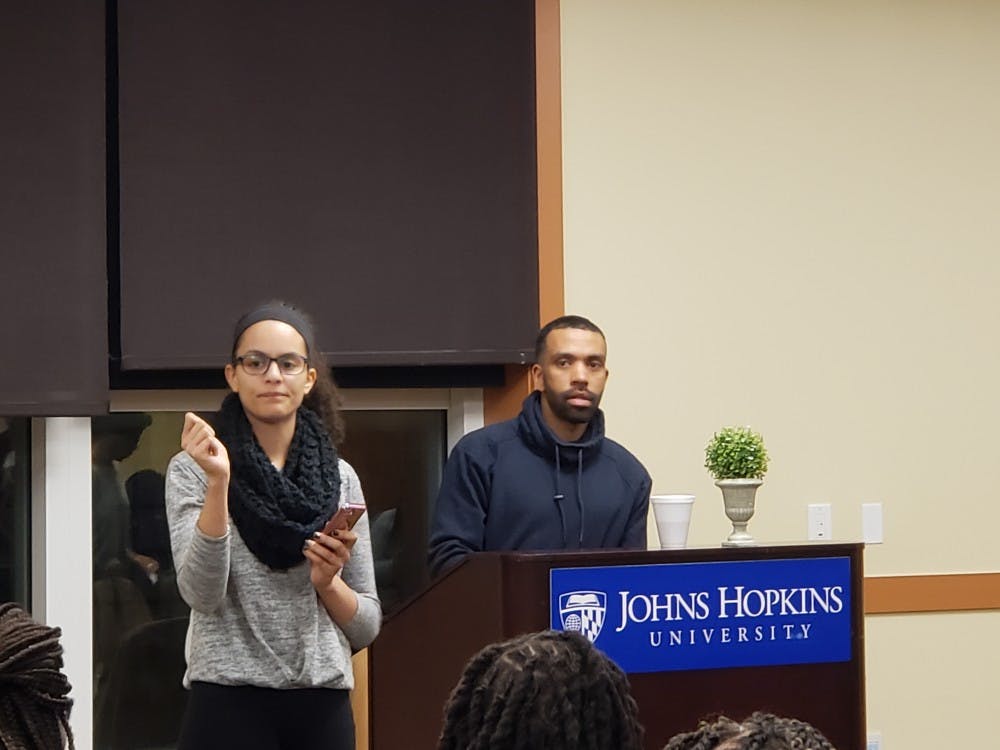The Office of Multicultural Affairs (OMA) hosted an event on Saturday called “Black Diaspora Relations at Hopkins.” The event aimed to encourage students to have conversations about how the mass dispersion of people from Africa during the Transatlantic Slave Trade from the 1500s to the 1800s impacts black diaspora communities today.
Moderated by Counseling Center Psychologist Brandon Davis, the event was formatted as a discussion among students about the divisions and complexities within the black diaspora community at Hopkins. Before the event started, Davis asked students to fill out slips of paper with discussion topics for him to use as talking points in the ensuing dialogue.
To begin the conversation, a student asked about wealth perception and the stigma associated with wealth among the black diaspora community. One student noted that the stigma came from a need for a stronger community rather than merely income inequality. Another acknowledged that though wealthier individuals were stigmatized to some extent, the focus should instead be on how they used their wealth.
The second topic of the event was dating at Hopkins. Several students noted that members of the diaspora community may face criticism if they choose to adopt certain fashion or natural hair trends. Participants agreed that colorism, which is discrimination based on skin tone within the black community, is a difficult issue for both lighter- and darker-skinned students.
During the final topic, students pointed out many misconceptions about mental health in the Hopkins diaspora community. Participants gave personal accounts about their struggles with mental health and the difficulty of informing their families about what they were going through. Davis agreed, noting the discomfort that students often experience when discussing mental health with him at the Counseling Center.
Overall, students had positive thoughts about the event. Freshman Jessica Cooley thought that the event allowed for an open discussion.
“It’s very inclusive. We talked about things that usually aren’t talked about,” she said.
Another student, sophomore Fope Onadeko, felt that the event provided a space for members of the diaspora to discuss issues in their community.
“The main thing about this event is unity, bringing people from different backgrounds in the black community together to talk about things as one,” she said.
Onadeko thought that out of the topics discussed, mental health was the most interesting because of the misconceptions surrounding it.
“It’s something that’s definitely overlooked in the black community, and people are trying to talk more about it to raise awareness, because it’s something that’s real,” she said. “It’s happening in the community.”
Davis felt that the event went well.
“The turnout was great, especially for it being Saturday night,” he said. “A lot of the issues that people who are in the diaspora experience were brought to the surface. People were very transparent and open to be able to hear what other people were saying and what people were experiencing.”
Davis thought that the event showed that there has been increased communication and understanding between black diasporic communities.
“There has been some shift in the thinking of being able to see what other peoples’ experiences are here at Hopkins and in life,” he said.





